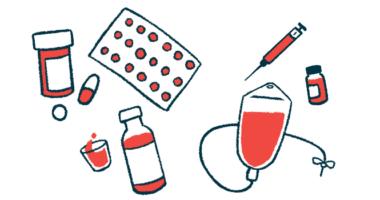Tyruko, first Tysabri biosimilar, approved in Europe for RMMS
Therapy OK'd for highly active disease by the European Commission

The European Commission has approved Tyruko (natalizumab), the first biosimilar of Tysabri, for the treatment of adults with highly active relapsing-remitting multiple sclerosis (RRMS).
The approval makes Tyruko available in the European Union for the same indication as its reference medicine. It also marks the first approval of a biosimilar for relapsing forms of multiple sclerosis (MS) in Europe.
A biosimilar is a biological therapy that contains an identical active agent as an approved brand-name therapy. This means it has the same mechanism, pharmacological properties, safety, and efficacy as the original medication. However, it is usually sold at a lower price, facilitating access to treatments.
“Today’s approval brings us one step closer to reducing the burden of this disease for those living with multiple sclerosis in Europe by making the life-enhancing treatments they need more accessible,” Rebecca Guntern, president of Europe at Sandoz, said in a company press release.
Tyryko was originally developed by Polpharma Biologics, but Sandoz, a subsidiary of Novartis specializing in biosimilar medications, is responsible for marketing the medication.
A similar approval was recently granted in the U.S., but there both Tysabri and Tyruko are approved for relapsing types of MS, including clinically isolated syndrome, RRMS, and active secondary progressive MS.
Under a 2019 agreement, Polpharma will be responsible for the development, manufacturing, and supply of the medication, while Sandoz has the rights to market and distribute it globally.
“Multiple sclerosis is a chronic condition with no cure at present and timely access to affordable, high-quality healthcare is therefore even more essential,” Guntern added.
In MS, the immune system mistakenly attacks myelin, a fatty substance surrounding nerve fibers that is essential for proper nerve cell communication. This leads to nerve cell damage and ultimately results in disease symptoms.
Barriers to accessing DMTs in many countries
Early treatment with disease-modifying therapies (DMT) can change the disease course and reduce future disability, but not all patients can access these treatments. According to a 2021 report from Atlas of MS, 72% of the countries cite barriers to accessing DMTs — and many point to cost as one of those barriers, which can be somewhat alleviated by generics and biosimilars.
Tysabri, developed by Biogen, is an antibody-based therapy designed to halt MS-related inflammation and damage by preventing immune cells from getting into the brain and spinal cord. It targets a protein at the surface of immune cells that’s essential for them to cross the blood vessel wall and enter the nervous system.
The therapy was approved in Europe in 2006 for the treatment of RRMS in adults with highly active disease.
The approval of Tyruko was based on a comprehensive data package showing the biosimilar doesn’t differ meaningfully from the original medication.
This included extensive functional and analytical characterization of the biosimilar, data from a Phase 1 trial confirming it behaves in the body similarly to Tysabri, and results from the Antelope Phase 3 clinical trial (NCT04115488).
The trial enrolled 265 participants with RRMS at nearly 50 clinical sites in Europe and compared the safety and efficacy of the two medications. Participants were randomly assigned to monthly infusions of either 300 mg Tyruko or 300 mg Tysabri for about one year.
Data showed the two drugs had similar safety and efficacy. Patients in both groups had comparable numbers of lesions and no differences in the rate of relapses or disability progression. Rates of side effects were also similar in the two groups.






